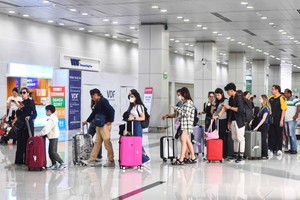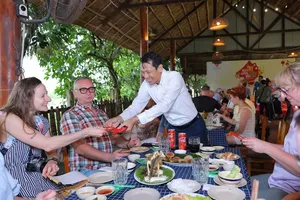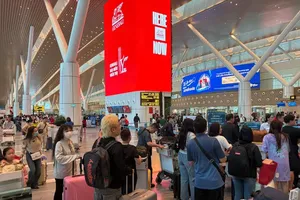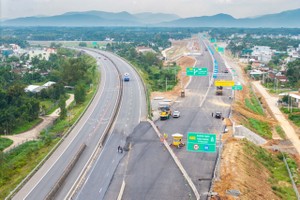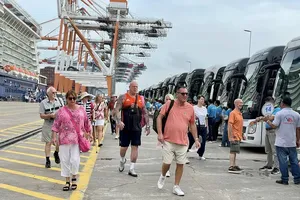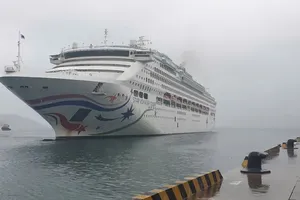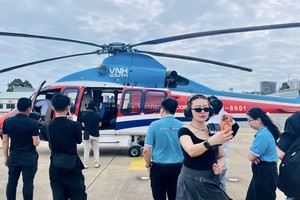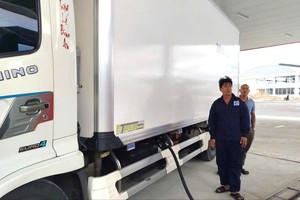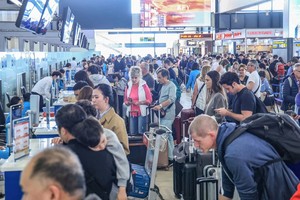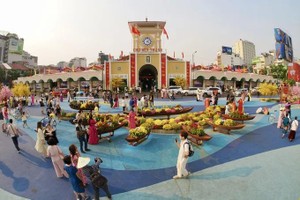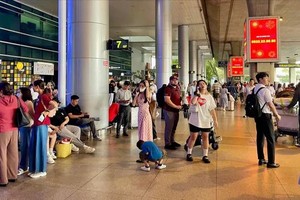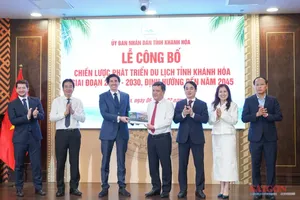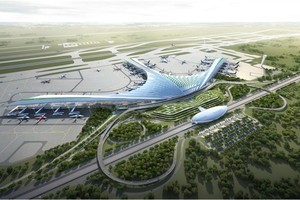To meet the target of 25 million, the sector must attract more than 11 million additional visitors in the remaining four months, equivalent to 2.75 million per month.
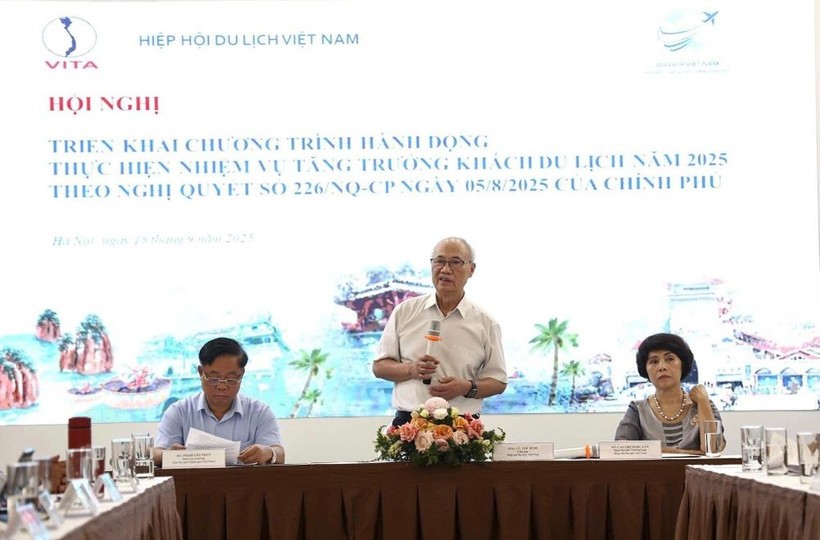
The Vietnam Tourism Association (VITA) held a conference in Hanoi on September 18 to roll out an action program aimed at achieving the tourism growth targets set for 2025.
The program, part of the Government’s Resolution 226/NQ-CP, is designed to mobilise local authorities, businesses and destinations to accelerate the sector’s development, to welcome 25 million international visitors and 150 million domestic travellers this year.
Statistics show that in the first eight months of 2025, Vietnam received nearly 14 million international visitors, averaging 1.75 million per month. To meet the target of 25 million, the sector must attract more than 11 million additional visitors in the remaining four months, equivalent to 2.75 million per month.
Although the fourth quarter traditionally marks the peak season for foreign arrivals, the growth target poses a significant challenge, requiring the tourism industry to act swiftly with coordinated and well-structured campaigns involving both localities and enterprises.
Pham Van Thuy, Deputy Director General of the Vietnam National Authority of Tourism under the Ministry of Culture, Sports and Tourism, emphasised the need for the industry to accelerate innovation, developing products based on market demand rather than simply promoting existing offerings. He called on the agency to work closely with authorities and enterprises in major tourism hubs such as Hanoi and Ho Chi Minh City to strengthen international promotion and attract high-spending visitors.
Airlines were urged to increase flight frequency to key markets and adopt competitive fares, while the domestic industry is to diversify transport options, including road and rail. With Vietnam already granting visa exemptions to many markets, stakeholders were advised to capitalise on these advantages. In the coming months, Vietnam will be prominently featured at major tourism fairs in Malaysia, Germany, throughout Europe, as well as in the Republic of Korea and Japan, while promoting its destinations through cinema.
VITA Chairman Vu The Binh outlined two key strategies to boost arrivals. These include intensifying digital communications and promotion on online platforms, with a focus on key and emerging markets, and expanding direct engagement with international travel agencies through familiarisation trips (FAM-trips) to showcase new products and facilitate inbound business.
As part of this effort, the VITA plans to roll out the “VITA FAMTRIPS 2025” program, inviting 300–400 representatives of travel firms from major markets, including the RoK, China, Japan, Taiwan (China), ASEAN countries, 12 European nations eligible for visa exemption, as well as Australia, the United States and India. Seven international delegations are expected to visit Vietnam in the fourth quarter of 2025 for surveys and business networking.
In parallel, the association will implement the “VITA GREEN” certification scheme for destinations, accommodation, travel services, and catering providers. In 2025, it aims to award at least 100 green labels and support two localities in transitioning to sustainable tourism, thereby enhancing the quality and competitiveness of the sector.
Binh emphasised that developing attractive new products holds the key to boosting international arrivals. The association will focus on green tourism while elevating Vietnamese cuisine into a signature attraction. Titles such as “Master Chef”, “Master Baker”, and “Master Mixologist” will be awarded to honour culinary artisans and promote Vietnam’s gastronomy abroad.
At the conference, representatives from local tourism associations, major travel companies and airlines also shared strategic measures to attract visitors. Provinces are developing new products, strengthening regional connectivity, linking tours and itineraries, and promoting meetings, incentives, conferences and exhibitions (MICE) tourism to draw high-spending segments. Efforts are being made to promote distinctive destinations and cultural products in key source markets.
